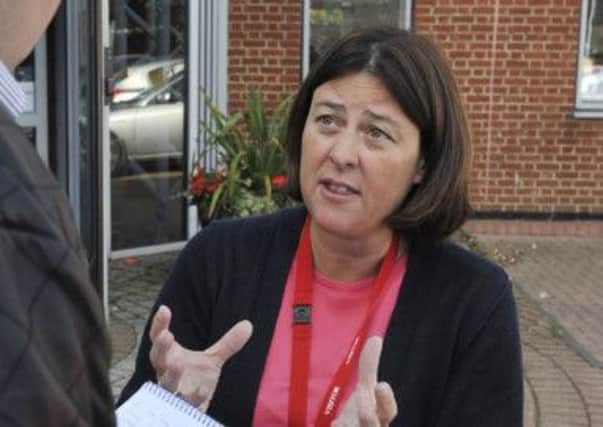Victims falling through cracks says Yorkshire police tsar


On the eve of the first anniversary since police and crime commissioners were elected, two commissioners have spoken out in favour of the victims of crime, saying they are “falling through the cracks”.
Kent police and crime commissioner Ann Barnes said she would like PCCs to have greater control over the criminal justice system to improve the victim experience.
Advertisement
Hide AdAdvertisement
Hide AdShe told BBC Radio 4’s Today programme: “PCCs have considerable power, as you know, but victims’ services are over all the parts of the criminal justice system.
“And I’d like to see, in the future, police and crime commissioners have some direct controI over all the different parts of the criminal justice system. I think we need to widen the scope of commissioners in the criminal justice system, because we need to put victims at the heart of that and they’re not.”
Her comments were echoed by North Yorkshire police and crime commissioner Julia Mulligan.
Ms Mulligan said: “Yeah, they’re falling through the cracks at the moment, and we need to solve that problem.”
Advertisement
Hide AdAdvertisement
Hide AdMs Mulligan, who has been campaigning for a new complaints handling office to end the perception of the police investigating themselves in North Yorkshire, said: “I have a steady stream of people coming into my surgeries and into my office on a weekly basis asking for help.
“And at the moment, the legislation doesn’t allow us to give that help and I want to be able to do that, because people are asking me to do that for them. That would be a big change, and actually I have employed case workers. The policy authority didn’t have case workers.
“So there’s a real expectation on the part of the public, I think, for us to support them in some very difficult and traumatic circumstances, and that’s a focus for me.”
PCCs were introduced to bring greater transparency and accountability to the police, among other things. Ms Barnes said holding the police to account was something she did “very robustly”.
Advertisement
Hide AdAdvertisement
Hide AdShe said she began the role by “throwing down the gauntlet and saying ‘Look, this has to be open and transparent’.
“And I actually commissioned an independent review around crime recording, which was not the police investigating themselves, it was actually saying this is going to be an open and honest debate here, and I do want the police force in Kent to be very public-facing.
“So that’s been one of the big issues I’ve been struggling with in Kent.”
The PCCs’ comments come after a new poll suggests that a third of the public believe that they have made no difference to performance of forces in England and Wales.
Advertisement
Hide AdAdvertisement
Hide AdAmong the controversial decisions made by PCCs was the appointment of youth PCC Paris Brown in Kent, who later resigned after she was accused of posting homophobic and racist comments on Twitter.
Ms Barnes, who appointed the 15-year-old, has since vowed to find a successor before the end of the year.
The two commissioners insisted that local people were very positive about having a face-to-face police contact.
Ms Mulligan said: “I have to get out there and talk to people, and when I do, I get almost universally a really positive reaction, because for the first time, there’s someone there who people can go to and ask questions of, and say what’s going on in the local area. People are really appreciating that.”
Advertisement
Hide AdAdvertisement
Hide AdIn a report published last month, think tank Policy Exchange called for more powers to be devolved to police and crime commissioners, including the power to hire and fire local prison governors and probation chiefs.
Head of crime and justice at Policy Exchange Max Chambers said: “Currently, PCCs are operating with one arm tied behind their back. They must be able to hold local criminal justice agencies to account. That includes the ability to appoint and dismiss prison governors and local probation chiefs, order inspections of criminal justice agencies and take over youth justice budgets.”
He added: “The ambition must be a system where, instead of local criminal justice leaders looking upwards and inwards to Whitehall for direction and validation, they increasingly look outwards to each other and downwards to the citizens they serve.”
According to the think tank, which first came up with the idea of PCCs, such a system would be more cost-effective and enable PCCs to “fulfil their potential”.